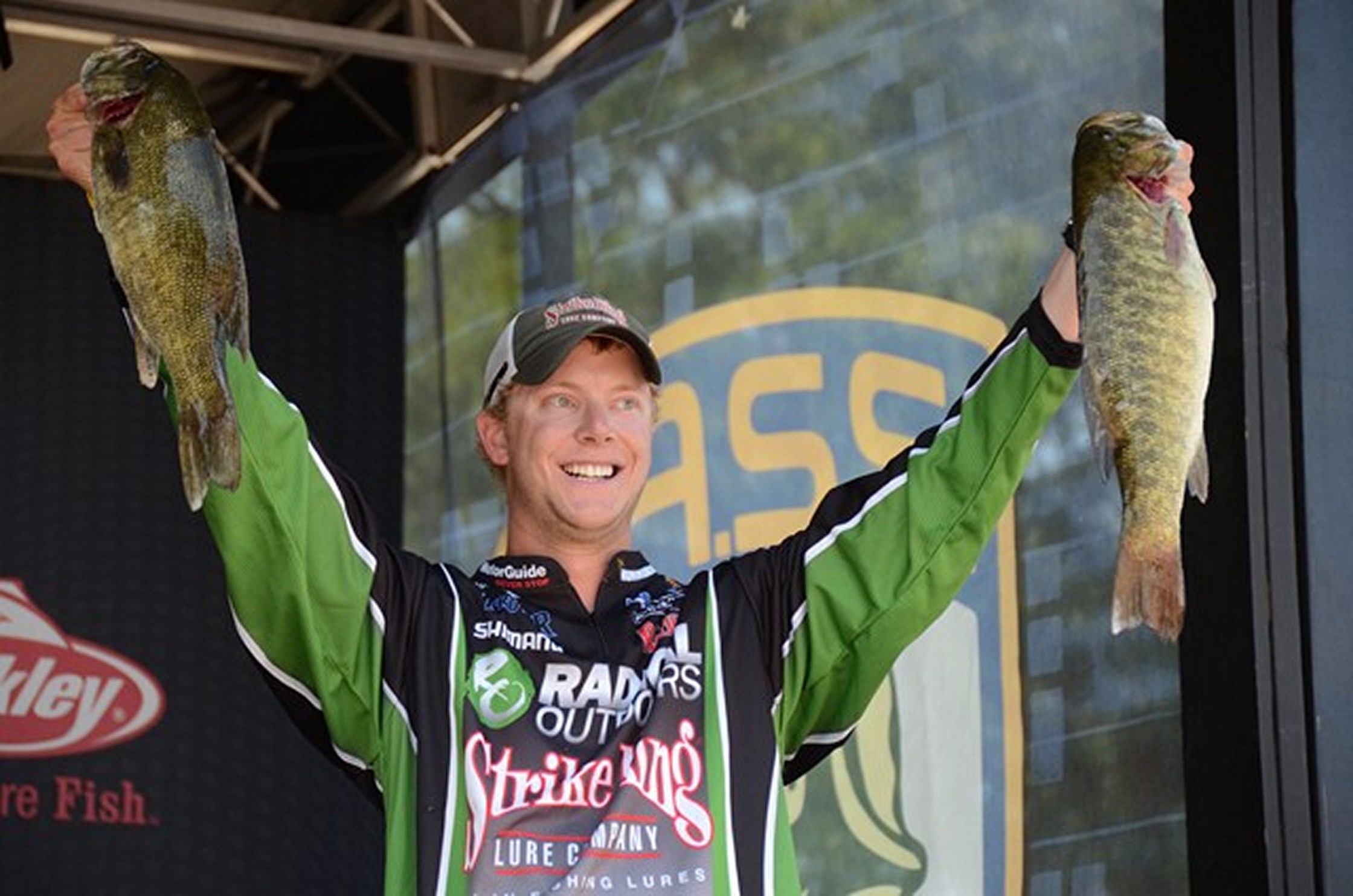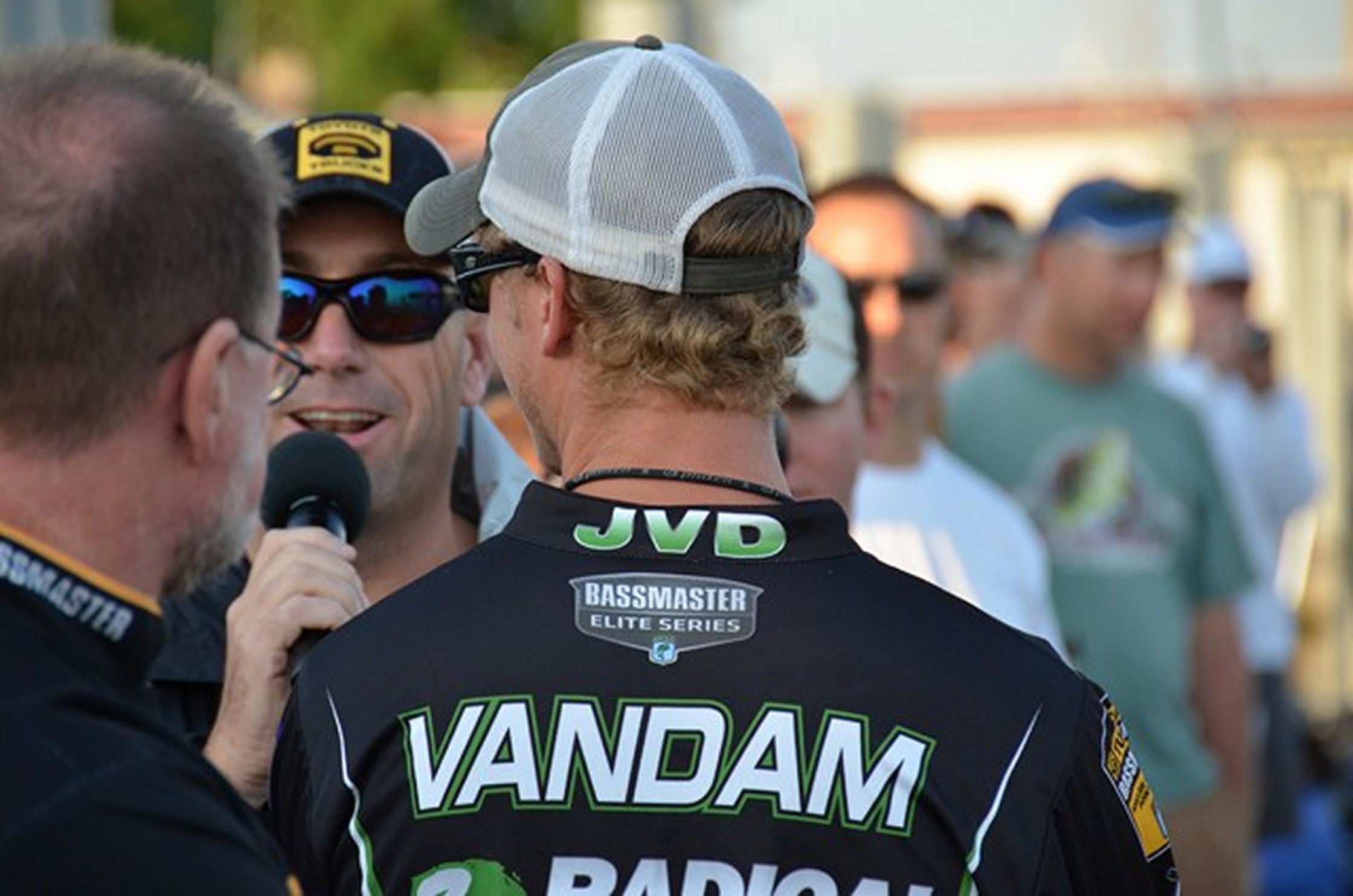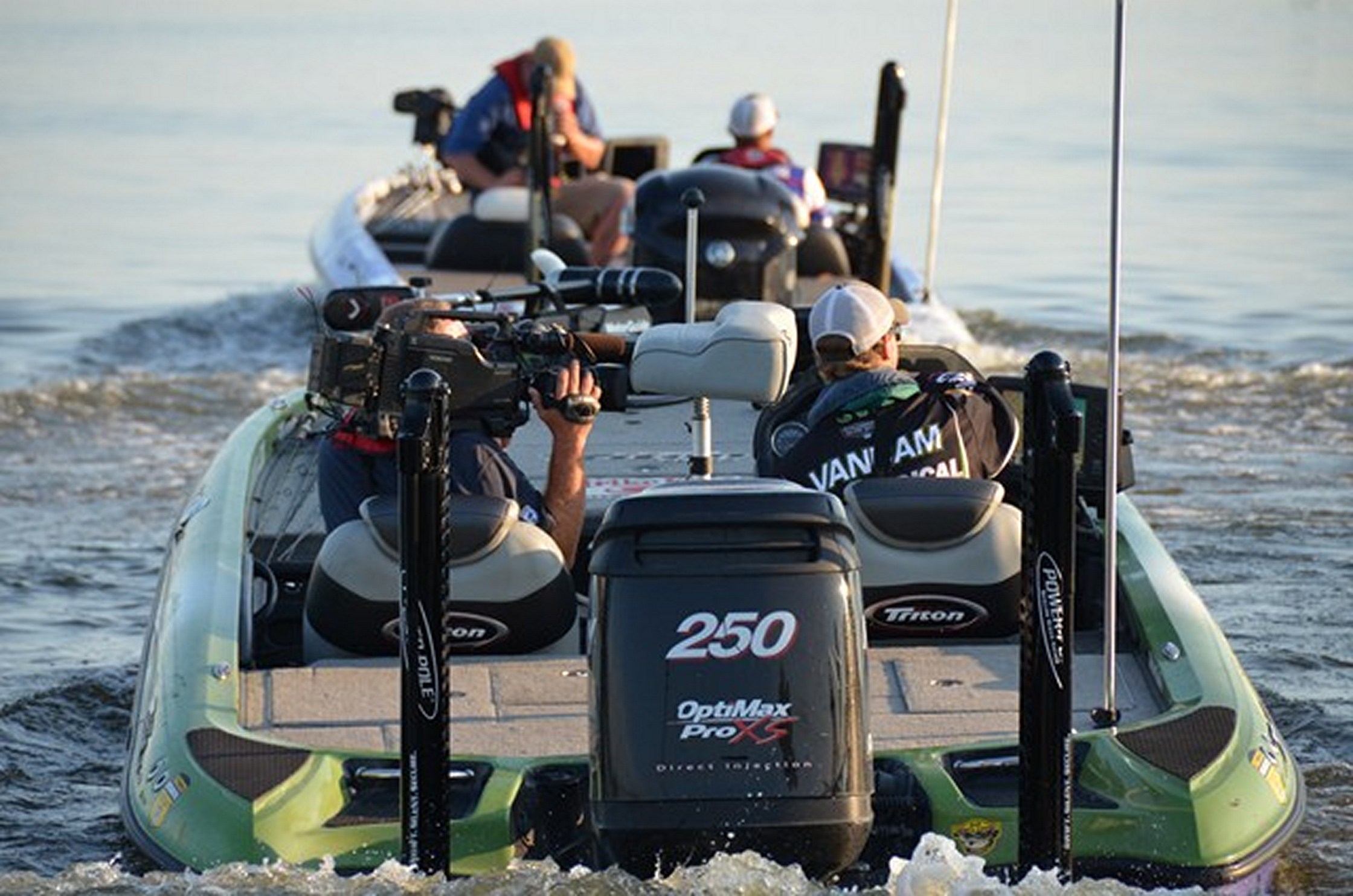Catching Up with Jonathon VanDam
Category: article
Nov 6th, 2012 by OutdoorsFIRST
Modified Nov 6th, 2012 at 12:00 AM
Having the same last name as the greatest professional bass angler of all time isn’t exactly a curse, but it’s not always a blessing when you’re starting your own professional bass fishing career.
 |
|
| Jonathon VanDam with his Day 4 catch from the Green Bay Challenge. (Photo BassFIRST) |
So Jonathon VanDam took a big step out of the formidable shadow cast by his Uncle Kevin by winning the Elite Series Green Bay Challenge in Wisconsin last summer in just his second year on the circuit.
“To a degree it has helped establish myself as a good fisherman,” VanDam told me when I caught up with him on his cell phone last week. He was moving trail cams and other deer hunting gear to his hunting spot to make use of the first good, cold weather moving into Southern Michigan.
“The win definitely helped my career a lot,” the 24-year-old Kalamazoo, Michigan native said. “I’m more known now as a smallmouth guy. It has helped a little bit to show that I can do it.”
He said the win definitely helped with sponsorship.
“I’ve picked up a decent number of new sponsors and the ones I’ve had stepped up a lot,” he said. “It actually was a huge help when negotiating with sponsors, especially with going to the Classic.”
He of course referred to the focal point of the bass world, the Bassmaster Classic, slated for February 22 to 24 on Grand Lake out of Tulsa, Oklahoma. Has he started planning for it?
“A little bit, but right now it’s hunting season!” he said, adding he has a trip to Oklahoma planned for late November to practice.
 |
|
| JVD moments before take-off on Day 4 of the Green Bay Challenge. (Photo BassFIRST) |
Once an angler qualifies for the “World Series” of bass fishing, the bar is set, and all future seasons will be judged by whether or not he qualifies again that season. VanDam was on the wrong side of the bubble going into Green Bay. He told this writer during pre-fishing that he had an outside chance of making the Classic if he made the final 12 cut at Green Bay and at the season finale at Oneida Lake in New York.
“But, I essentially needed the win,” he said last week. “I didn’t have the most consistent season. That’s one thing I’m trying to focus on in the coming year.”
Does that mean he’s not going to swing for the fences in the 2013 Elite events?
“No I still am going for the home runs,” he said. “I go to every tournament with the mindset that I’m trying to win, but being consistent means trying to minimize the finishes in the 70s-just make it so that in a bad tournament, you’re still in the top 50.”
What does that mean and how do you do that?
“It’s just a matter of making the right adjustments at the right times,” he says. “It’s going to be something you have to work on regardless of where you’re at.”
Of the upcoming Elite Series schedule, there are three events he’s most excited about fishing.
“Lake St. Clair for sure, I’m obviously looking forward to that one. It’s a big smallmouth place. Also the Saint Lawrence River, another smallmouth place where I’ll have some confidence and can fish to my strengths.
 |
|
| JVD heads out on Day 4 of the Green Bay Challenge. (Photo BassFIRST) |
“The other one is a place I’ve just always wanted to go, and that’s Falcon Lake in Texas, known for 10-pounders,” he said. He’s already planning to think big-really big-down there.
“Falcon Lake is a fish factory, but last time there was a tournament there, it took 50 pounds for two days just to make the top 50 in the standings,” he says. “It’s going to be hard to get into that mindset that if you’re catching nothing but four pounders, you’re in the wrong spot. Especially for a northern guy!”
Asked about techniques he feels he might have to work on for 2013, he considers for a moment before answering.
“You know, for the most part at this level, the knowledge of techniques is there. For me, it’s a matter of getting more experience on some of these places. The first year I fished the Elite Series, I had been to just one-no, two-of the places we fished. Next year, I’ll have been to six of the eight places we’re going to. That gives me more of a starting point, really, just having more knowledge of the area. We get two and a half days of practice, and instead of spending it learning the area, I can spend it figuring out how to catch fish.”